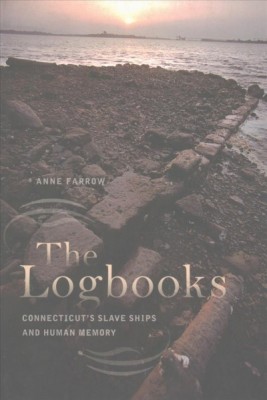| The Logbooks: Connecticut's Slave Ships and Human Memory Contributor(s): Farrow, Anne (Author) |
|
 |
ISBN: 0819576441 ISBN-13: 9780819576446 Publisher: Wesleyan University Press OUR PRICE: $17.96 Product Type: Paperback - Other Formats Published: June 2016 |
| Additional Information |
| BISAC Categories: - Social Science | Slavery - History | United States - State & Local - New England (ct, Ma, Me, Nh, Ri, Vt) |
| Dewey: 306.362 |
| Series: Driftless Connecticut Series & Garnet Books |
| Physical Information: 0.5" H x 6" W x 8.9" (0.70 lbs) 208 pages |
| Themes: - Cultural Region - New England |
| Descriptions, Reviews, Etc. |
| Publisher Description: Three long-neglected logbooks from Connecticut's slave trade raise questions about memory and collective forgetting In 1757, a sailing ship owned by an affluent Connecticut merchant sailed from New London to the tiny island of Bence in Sierra Leone, West Africa, to take on fresh water and slaves. On board was the owner's son, on a training voyage to learn the trade. The Logbooks explores that voyage, and two others documented by that young man, to unearth new realities of Connecticut's slave trade and question how we could have forgotten this part of our past so completely. When writer Anne Farrow discovered the significance of the logbooks for the Africa and two other ships in 2004, her mother had been recently diagnosed with dementia. As Farrow bore witness to the impact of memory loss on her mother's sense of self, she also began a journey into the world of the logbooks and the Atlantic slave trade, eventually retracing part of the Africa's long-ago voyage to Sierra Leone. As the narrative unfolds in The Logbooks, Farrow explores the idea that if our history is incomplete, then collectively we have forgotten who we are--a loss that is in some ways similar to what her mother experienced. Her meditations are well rounded with references to the work of writers, historians, and psychologists. Forthright, well researched, and warmly recounted, Farrow's writing is that of a novelist's, with an eye for detail. Using a wealth of primary sources, she paints a vivid picture of the eighteenth-century Connecticut slavers. The multiple narratives combine in surprising and effective ways to make this an intimate confrontation with the past, and a powerful meditation on how slavery still affects us. |